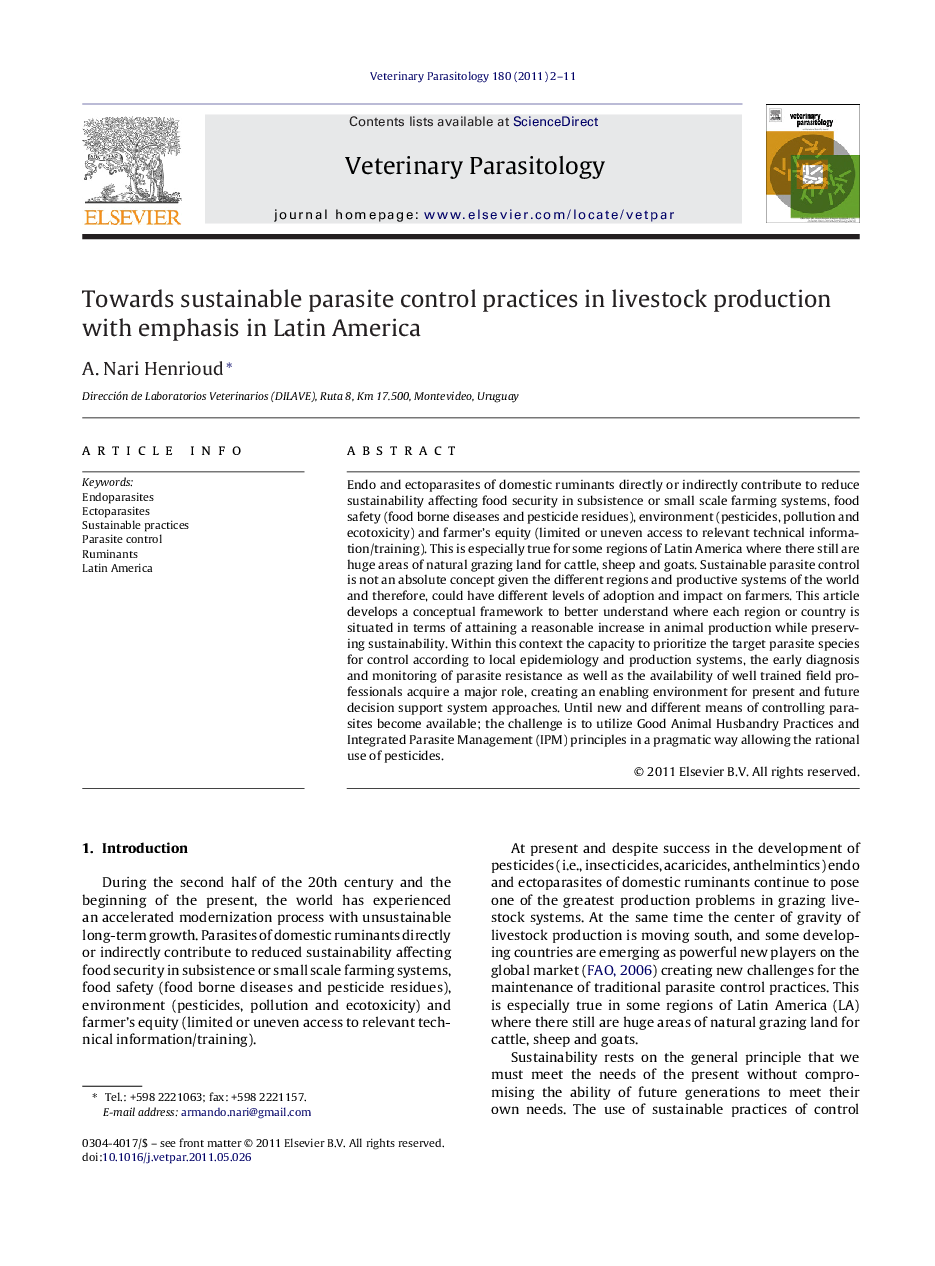| Article ID | Journal | Published Year | Pages | File Type |
|---|---|---|---|---|
| 5805817 | Veterinary Parasitology | 2011 | 10 Pages |
Endo and ectoparasites of domestic ruminants directly or indirectly contribute to reduce sustainability affecting food security in subsistence or small scale farming systems, food safety (food borne diseases and pesticide residues), environment (pesticides, pollution and ecotoxicity) and farmer's equity (limited or uneven access to relevant technical information/training). This is especially true for some regions of Latin America where there still are huge areas of natural grazing land for cattle, sheep and goats. Sustainable parasite control is not an absolute concept given the different regions and productive systems of the world and therefore, could have different levels of adoption and impact on farmers. This article develops a conceptual framework to better understand where each region or country is situated in terms of attaining a reasonable increase in animal production while preserving sustainability. Within this context the capacity to prioritize the target parasite species for control according to local epidemiology and production systems, the early diagnosis and monitoring of parasite resistance as well as the availability of well trained field professionals acquire a major role, creating an enabling environment for present and future decision support system approaches. Until new and different means of controlling parasites become available; the challenge is to utilize Good Animal Husbandry Practices and Integrated Parasite Management (IPM) principles in a pragmatic way allowing the rational use of pesticides.
